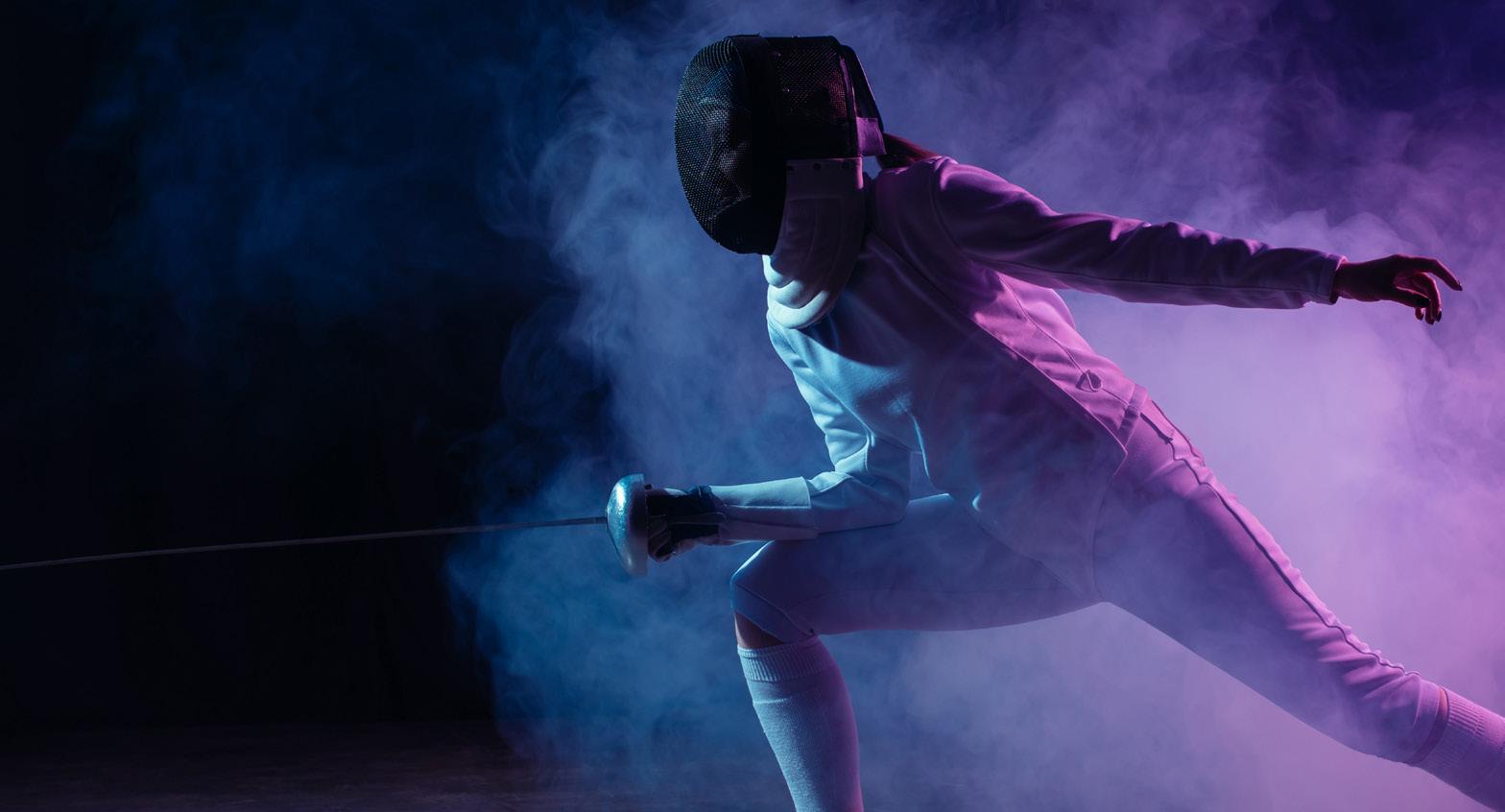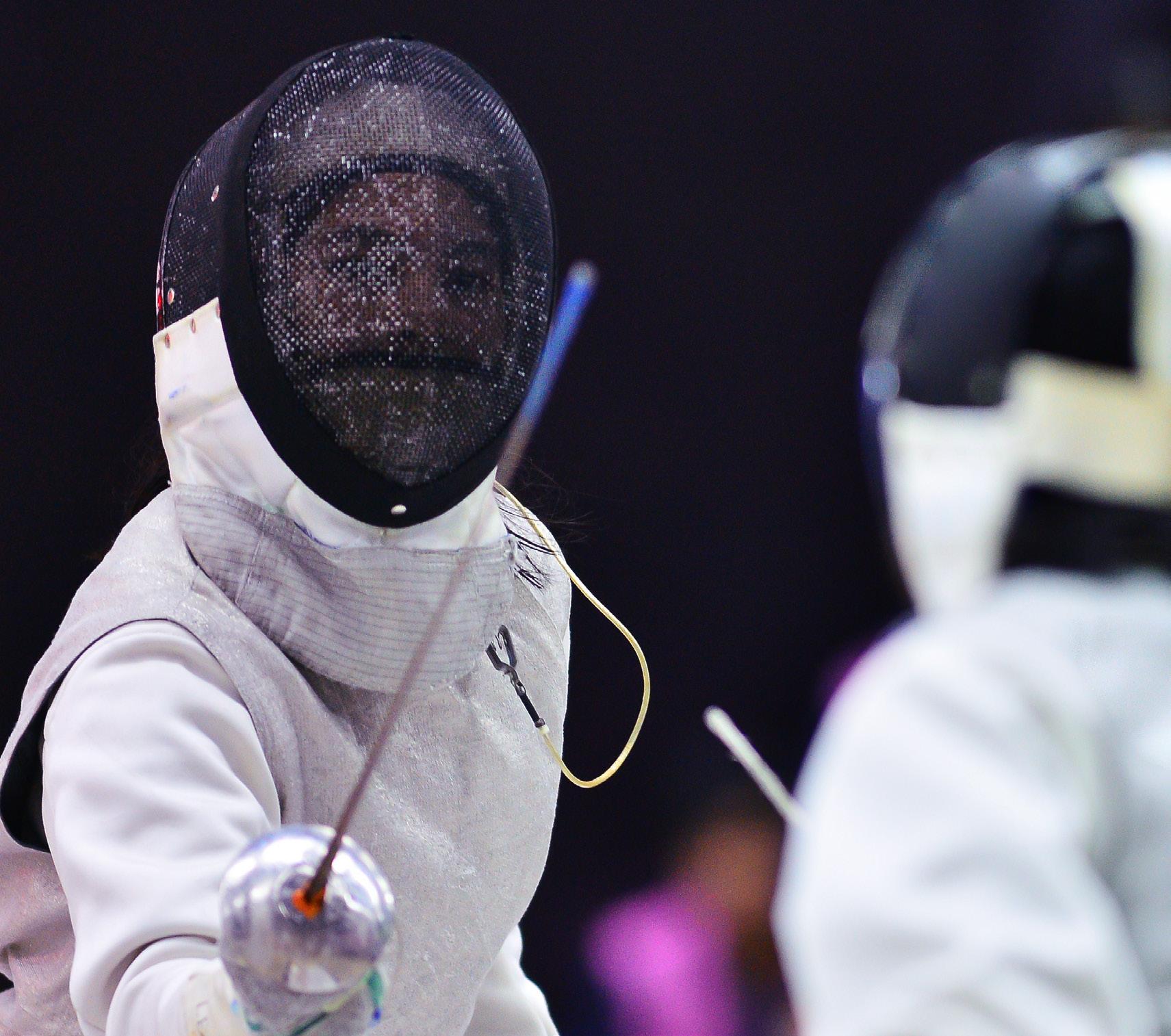




Case study: University of Winchester and British Fencing
the University of Winchester is helping to
Project: Coach Education Resource Development Project
Collaborating Organisation: British Fencing
Project Timescales: Pilot stage, launch planned September 2024
The University of Winchester has been working with British Fencing to develop a coaching analysis and education tool in the form of a fisheye camera lens to be used in the helmet of both the fencer and the coach.
The aim is to progress and enhance the performance of both the coach and the athlete by enabling them detailed insight into their training.
The University of Winchester’s Research and Development Team
Richard Cheetham MBE is Senior Fellow in Sports Coaching at the University of Winchester. He has been at the University for 19 years where he teaches on the Sport Coaching degree. Richard is renowned in his field of coaching consultancy and has helped to develop coaching practices and innovations with partners including British Cycling and the England Cricket Coaches Association.
British Fencing
British Fencing is the national governing body for the Olympic and Paralympic sport of fencing in the UK. Jon Salfield, Head of Performance; and Dusty Miller, Head of People and Culture; are key partners from British Fencing in the collaboration.
Richard Cheetham MBE said “At the highest level of performance, it’s not taking somebody from 50 out of 100 to 70, it’s taking somebody from 88 to 90. It’s just a small difference, but at that level, it can be a huge difference.”

In fencing, you can lose a match based upon one bad habit or mistake. At the highest level, there is a need to eradicate the smallest of errors.
Bringing his experience in using video analysis as a coaching tool for other sports like mountain biking and rugby, Richard Cheetham recognised an opportunity to apply it as a coaching tool in fencing with the objective of enhancing performance for both athletes and coaches.
In a sport where the need for accuracy is paramount, video analysis has the potential to help show the coach and the athlete where performance is improving and can be improved.
Fencing has three disciplines – épée, sabre, and foil – and the critical need for accuracy in defence and attack in all of those is crucial.
The tool also has benefits at the entry level: novice coaches can learn about their own coaching practice and novice athletes can see how they’re progressing.
The project is in the development stage and being trialled with coaches and athletes at British Fencing; it is planned to launch officially in September 2024.
Working with a busy team preparing for the 2024 Olympics and Paralympics has been one of the key challenges, emphasising the need to be useful and make a difference with the use of that time.
The application of a new innovation into a sport with historical roots and approaches has also challenged the thinking of the project team.
Richard explained that, “Innovation isn’t always about technology or equipment, it’s about how you think about something.”

The project is a real-world example of the University’s research and development in practice. For students at the University, it teaches the theory and practice together.
Projects like this, at the elite level of sport, demonstrate that the University of Winchester is at the forefront of innovation.
The project has also involved crosscollaboration within the University, with the University’s film production unit helping with the video technology.
Richard told us, “I want our students to know that the University of Winchester is a place where they’re involved in innovative ideas – we’re at the business end of what we do on our degrees.”
Above all, the project demonstrates that innovation in terms of applied practices is as valuable as published research work.
Richard believes that, “The stronger our relationships with relevant partners and organisations, the better we’re going to be.”
Once the video analysis tool is fully developed Richard’s aspiration is that sports scientists will adopt it as an education tool with multiple uses

“We’ve got great ambassadors for our degree, arranging some brilliant opportunities in a whole host of sports from pentathlon to football, and cricket. If we strengthen these links, then those roles become things that students really believe they can do.”
Richard Cheetham, University of Winchester


For further information please contact the Research and Innovation team on collaborate@winchester.ac.uk
University of Winchester, Sparkford Road, Winchester, Hampshire, SO22 4NR
winchester.ac.uk
Tel: +44 (0) 1962 841515
enquiries@winchester.ac.uk